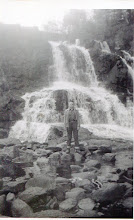President Obama won election with a decisive victory over his political opponent. Yet the election was much in doubt until that last campaign month, until that financial disaster harmed our great country. President Obama’s opponent was seen to act with less than admirable behavior, much shilly-shally coupled with questions about what would he do, which he did not.
President Obama campaigned as a moderate, who promised much and used words pleasing to many. Some thought that candidate was not born as an American, yet it is obvious that he was, wasn’t he? Others claimed that candidate was a Socialist, one of a kind with those old evil doers, yet it’s obvious he’s not, isn’t it? Yet others said that because his father was a born into the Islamic Faith that the son must be one also, yet the son claimed to be a member in good standing in an established Christian Church in Chicago, led by a Christian minister of some repute, that is obvious and not yet denied, well it isn’t.
Our president also said he would not raise taxes on the middle class, that vast grouping of citizens who are neither poor nor rich. He did state during the campaign he wanted to redistribute “the wealth” when he conversed with “Joe the Plumber,” yet has he done so? Some would say he has raised taxes and has redistributed wealth.
Our president has been installed in a very high office, one imbrued with much tradition and power. President Obama has inherited the same power that Washington established, that Jefferson and Lincoln wielded, that FDR used to protect this country during the last world war, that so many now fear is too great, too strong, too subject to misuse and abuse. Perhaps so? However, one of our worst and weakest executives, President Buchanan, failed to use the power of the national executive to protect this country when the war between the several states was fast approaching.
That said, what shall our president now do? Shall he continue to exert his political power on congress and demand further control, further federal legislation, over private enterprise, all in the name of the “good?” Shall he exert his executive powers and impose his will on the nation, a powder which has been allowed previously, in a real sense, for the executive to use?
Can ordinary citizens refuse to bend to the president’s will, once that will has been determined? No, in so many senses and in many instances. But yes, in a political sense if the electorate chooses.
Our president can wage war, even so-called undeclared war. He may issue orders that ordinary citizens or federal agents may not. He may act in many ways that we, ordinary citizens, might believe unjust or unwise or unlawful; so much power if used. Who shall dispute his actions? The judiciary might so disallow his acts yet how is it to enforce that disallowing? Congress might also disallow his actions, not the current Congress but perhaps a future Congress. Yet its only recourse, apparently, is the power of the purse, which power has been superseded by previous presidents, Lincoln for one, for a time.
Which leaves but one sure way to deny the president’s will, vote against his Congressional supporters, against all in any office who would support President Obama! Encourage strong political acts opposing this president. Allow this president to decide how he shall respond to a politically aroused citizenry. But, remove his Congressional support and prepare him for his political loss of office in 2012.
Lastly, however President Obama elects to use his power of the executive, I can only hope that he fully understands its import and effect upon the nation. Given the president’s foreign policy actions so far, that hope might be a forlorn one yet that too could change.
Subscribe to:
Post Comments (Atom)

No comments:
Post a Comment